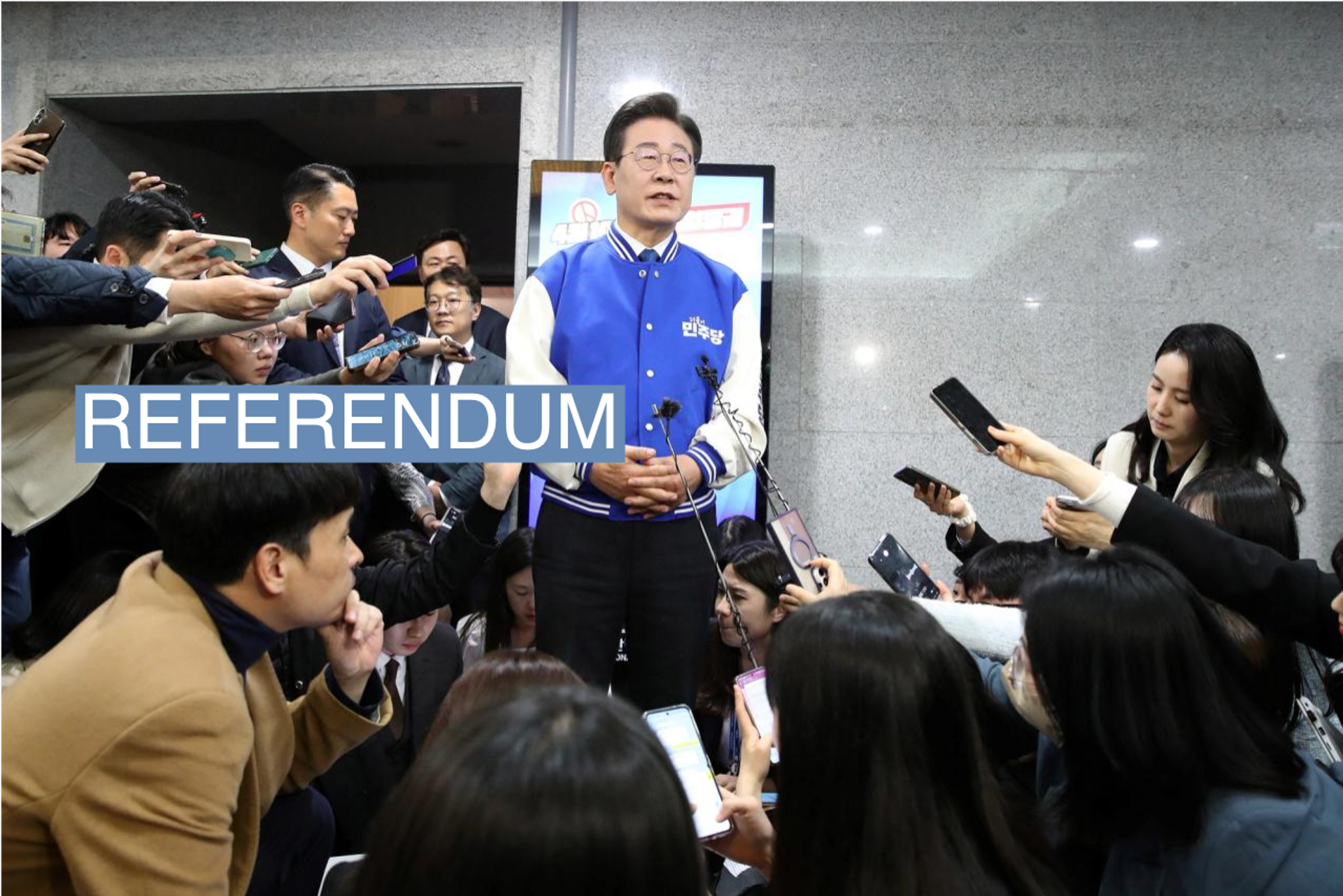Semafor Signals
Supported by
South Korean president bracing for major loss in parliamentary election
Insights from Chosun Ilbo, Foreign Policy, and the Korean JoongAng Daily

The News
South Korean exit polls Wednesday predicted a landslide victory for the opposition in legislative elections, in a huge blow to President Yoon Suk Yeol and his conservative People Power Party (PPP).
The Democratic Party and its satellite parties have so far won 156 of the 254 National Assembly seats, compared to 94 PPP seats, the Chosun Ilbo newspaper reported. Final vote tallies are not expected until early Thursday morning.
The parliamentary election — which has seen the largest turnout in 32 years — is widely considered a referendum on Yoon’s two years in power, with voters concerned about the high cost of living and a healthcare crisis fueled by a doctors’ strike.
SIGNALS
Yoon at risk of ‘lame duck’ leadership
The opposition’s expected victory means Yoon is widely expected to serve the rest of his term as a “lame duck” unable to push forward his policy agendas in parliament. With 180 seats in parliament, the Democratic Party can “fast-track” their own legislation, “putting brakes” on Yoon’s administration, while 200 or more seats for the opposition would effectively nullify Yoon’s veto power, enabling his opponents to pass legislation and constitutional amendments, as well as initiate impeachment proceedings, according to Seoul-based journalist Raphael Rashid. Despite the opposition’s expected win, both parties “fell far short of public expectations” by pushing candidates accused of corruption and satellite parties deemed unconstitutional, a Chosun Ilbo editorial stated.
Broadcast election coverage entertains, but doesn’t inform
South Korea’s television coverage of the elections invokes elements of K-drama. Voters tuning in were greeted with flashy animated videos of President Yoon Suk Yeol and opposition leader Lee Jae Myung competing in a speed skating race, engaging in a rap battle, and doing stunts in a Mission Impossible-like train fight scene. Election planning teams at major broadcasters have been carefully crafting these spectacles for a year to draw in younger viewers, and potentially encourage them to vote, the BBC reported. But while the coverage is “undoubtedly entertaining,” it doesn’t provide voters with enough information on critical issues like education and healthcare, one political scientist told the BBC.
Party defectors were popular, but performed poorly
Yoon’s conservative government may be in trouble, but “South Korean liberals have been mired in a civil war,” S. Nathan Park, an East Asian politics expert, wrote in Foreign Policy. Liberals who disliked Yoon but were fed up with the Democratic Party’s internal squabbles split off to form new parties such as the Rebuilding Korea Party (RKP), which quickly became the country’s most popular party after its launch. However, exit polls showed the RKP is only expected to pick up 11 to 14 seats, with the Democratic Party receiving the most support, according to the Korea JoongAng Daily. Other “splinter parties led by defectors from the two major parties are predicted to fare poorly,” the paper wrote.
